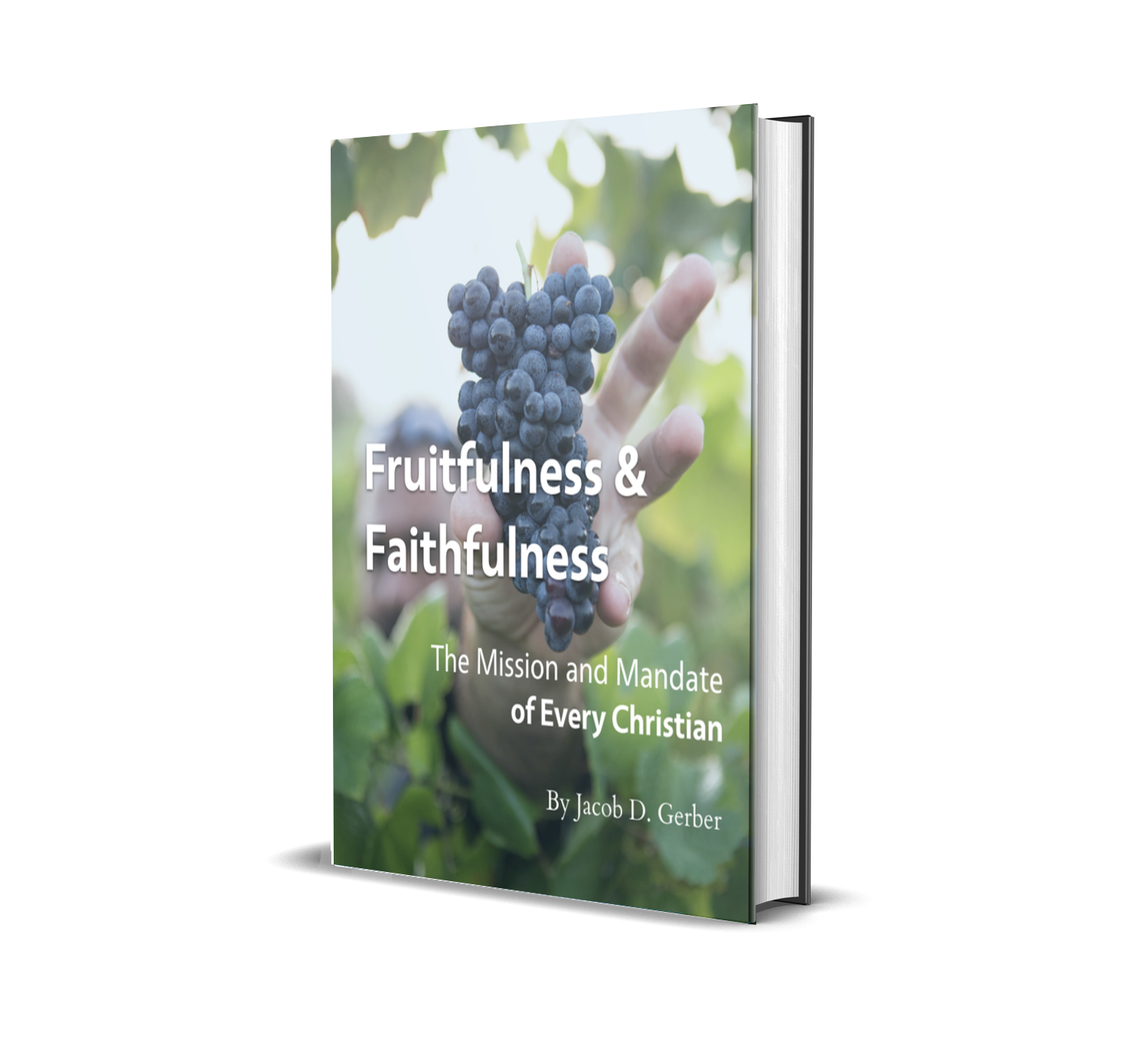All Church Power is Only Ministerial and Declarative
I am an ordained pastor in the Presbyterian Church in America (PCA). As a fundamental principle, our Book of Church Order limits church power and authority to be only ministerial and declarative:
All church power, whether exercised by the body in general, or by representation, is only ministerial and declarative since the Holy Scriptures are the only rule of faith and practice. No church judicatory may make laws to bind the conscience. All church courts may err through human frailty, yet it rests upon them to uphold the laws of Scripture though this obligation be lodged with fallible men.
This is perhaps the most important principle for developing a thoroughly biblical ecclesiology (doctrine of the church). Understanding church power as only ministerial and declarative helps to navigate several thorny theological and practical issues of church government.
Church Power is Not Magisterial and Legislative
By affirming what church power is, we are also denying what church power is not. Specifically, we are denying the doctrine of the Roman Catholic Church that church power is magisterial and legislative. (This article from the Orthodox Presbyterian Church website helpfully draws this contrast.)
In Roman Catholicism, the Church holds the authority to establish dogma. The idea is that Jesus Christ has invested the church with a deposit of tradition that stands alongside the deposit of Scripture.
Protestants, on the other hand, believe that the church is entirely under the authority of the Scriptures. Since God speaks through his Word and Spirit alone, we must constantly reform our faith and practice by nothing but the Bible.
Therefore, the Roman Catholic Church believes that they hold two powers that Protestants would deny.
Infallible Interpretations of Scripture
First, Roman Catholics believe that the Magisterium (the pope and the bishops of the church) has the power to declare infallible interpretations of the Scripture.
Protestants affirm that the church is “a pillar and buttress of the truth (1 Tim. 3:15). But, we believe that the Scriptures are infallible, not our interpretations of the Scriptures. Here is what the Westminster Confession of Faith teaches:
The supreme judge by which all controversies of religion are to be determined, and all decrees of councils, opinions of ancient writers, doctrines of men, and private spirits, are to be examined, and in whose sentence we are to rest, can be no other but the Holy Spirit speaking in the Scripture. (WCF 1.10)
All synods or councils, since the Apostles’ times, whether general or particular, may err; and many have erred. Therefore they are not to be made the rule of faith, or practice; but to be used as a help in both. (WCF 31.3)
We must even submit our confessional documents under the authority of Scripture. That is, we hold to our confessional statements because we believe that they accurately expound the Scriptures. If the Scriptures teach something different from the Scriptures, we must obey the Scriptures. Only the Scriptures (and not our creeds and confessions) are the rule of faith.
Legislative Ability to Establish New Doctrines
Second, Roman Catholics believe that the Magisterium holds the power to establish new doctrines outside of what the Scriptures teach. For example, the Scriptures nowhere teach that God intervened to protect Mary herself from inheriting original sin. Nevertheless, Pope Pius IX legislated the doctrine of Mary’s Immaculate Conception to be official Roman Catholic dogma in 1854.
Protestants reject the idea that the church may legislate doctrines outside of the Scriptures. Again, the Westminster Confession of Faith:
The whole counsel of God concerning all things necessary for His own glory, man’s salvation, faith and life, is either expressly set down in Scripture, or by good and necessary consequence may be deduced from Scripture: unto which nothing at any time is to be added, whether by new revelations of the Spirit or traditions of men. (WCF 1.6)
All Church Power is Only Ministerial and Declarative
Instead, we hold that church power is limited to ministerial and declarative functions. The Westminster Confession of Faith defines both of these terms.
Church Power is Ministerial
First, let’s look at the meaning of ministerial:
It belongeth to synods and councils, ministerially to determine controversies of faith, and cases of conscience; to set down rules and directions for the better ordering of the public worship of God, and government of His Church; to receive complaints in cases of maladministration, and authoritatively to determine the same: which decrees and determinations, if consonant to the Word of God, are to be received with reverence and submission; not only for their agreement with the Word, but also for the power whereby they are made, as being an ordinance of God appointed thereunto in His Word. (WCF 31.2)
The ministerial use of church power, then, has to do with applying the Scriptures to specific cases. Whether when the session of a church disciplines someone for some sin, or when a church council seeks to address a theological controversy, the church does not legislate doctrine.
Instead, the church only applies the doctrine that the Scriptures teach. Of the Keys to the Kingdom that Christ gives to his church for binding and for loosing, this is the Key of Discipline (cf. Matt. 18:15–20).
Church Power is Declarative
Second, the meaning of declarative stems from the way God has declared his will in the Scriptures:
Although the light of nature, and the works of creation and providence do so far manifest the goodness, wisdom, and power of God, as to leave men unexcusable; yet are they not sufficient to give that knowledge of God, and of his will, which is necessary unto salvation. Therefore it pleased the Lord, at sundry times, and in divers manners, to reveal himself, and to declare that his will unto his church; and afterwards, for the better preserving and propagating of the truth, and for the more sure establishment and comfort of the church against the corruption of the flesh, and the malice of Satan and of the world, to commit the same wholly unto writing: which maketh the Holy Scripture to be most necessary; those former ways of God’s revealing his will unto his people being now ceased. (WCF 1.1)
Additionally, the word declare appears in connection with the sacraments:
The Lord Jesus hath, in this ordinance, appointed his ministers to declare his word of institution to the people. (WCF 29.3)
We cannot come to a saving knowledge of God through nature, intuition, or reason. The only way we can know God’s will is through the way he has declared it to us—through his word and his sacraments. This is the other key to the kingdom given for binding and loosing—the Key of Doctrine (cf. Matt. 16:16–19).
How We Exercise Church Power
Limiting church power to ministerial and declarative uses significantly diminishes the range of our authority. Still, the church does have power, and the church must exercise that power.
The authority of the church, though, is in the authority of the word of God. There is real power in the reading and preaching of God’s word, and in the administration of the sacraments. When we declare God’s word by reading it, and when we minister God’s word through preaching and the sacraments, King Jesus exercises his authority over his church.
Therefore, we must bind consciences to God’s word. When we do so according to God’s word, we proclaim God’s right to reign as king.
But, we may never bind consciences according to our own opinions. Church power is not legislative and magisterial, and we have no right to usurp the authority of King Jesus on this earth.
Instead, we minister God’s word and declare God’s word. And as we do so, our Good Shepherd leads his flock by his own voice into salvation and into good pasture (John 10:1–18).
FREE eBook: Fruitfulness and Faithfulness: God’s Mission and Mandate of Every Christian
Grow in God’s Plan for Your Fruitfulness and Faithfulness

Invest Your Life Well
Discover God’s breathtaking vision for the fruitfulness of his people.
Learn how to live fruitfully and faithfully in the kingdom of Jesus.
Download the free eBook now.
Get the eBook
Bonus: You’ll also get a discipleship assessment tool to evaluate areas for you to grow in fruitfulness and faithfulness.




